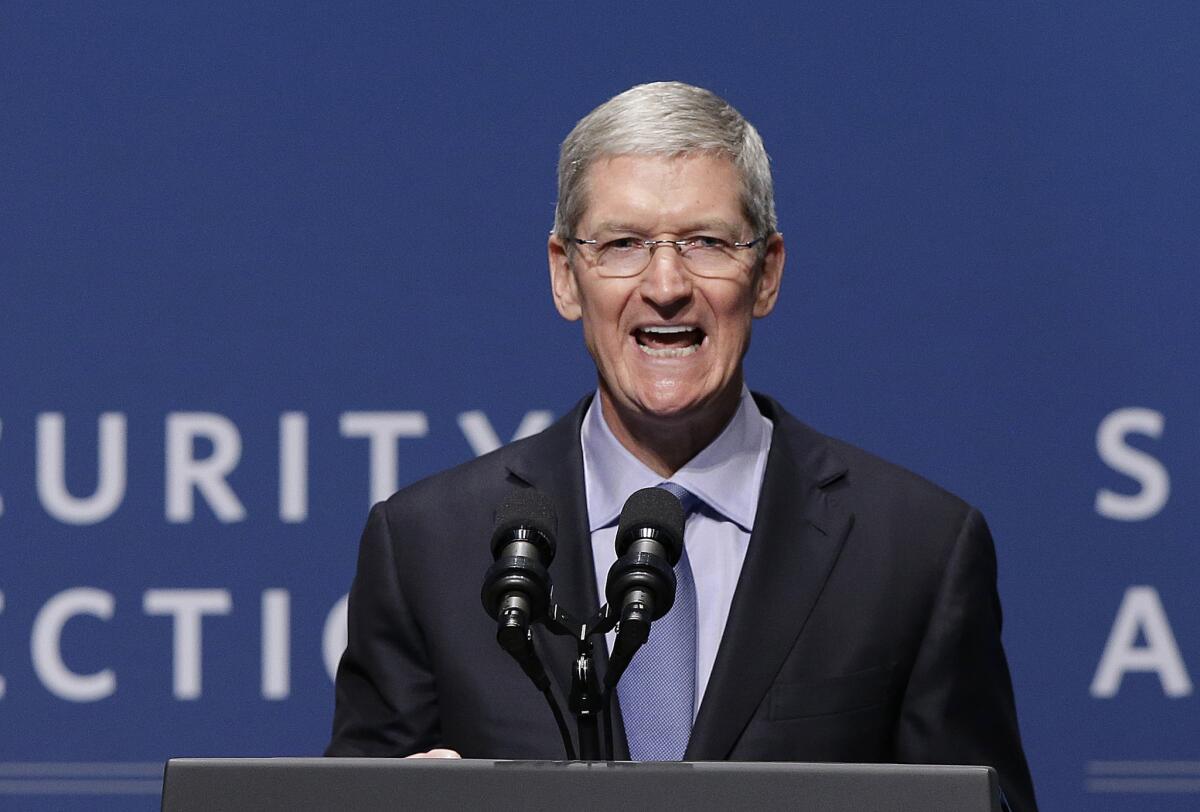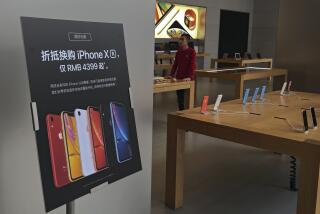Without naming names, Apple CEO Tim Cook jabs firms selling user data

Why did the CEOs of Google, Facebook and Yahoo decline invitations to attend President Obama’s speech at Stanford’s cybersecurity conference? Only they know for sure.
But they did avoid the embarrassment of sitting in the audience while Apple CEO Tim Cook obliquely lambasted the kind of companies they work for.
In a 10-minute presentation that immediately preceded President Obama’s speech Friday at a major cybersecurity conference at Stanford University, Cook emphasized that Apple is “not selling your personal data.”
He didn’t name those who do. But some of the biggest tech companies that fit the category are Google, Facebook and Yahoo. They’ve said the data they use is anonymized to avoid direct identification, but advertisers depend on personal preference data to tailor products and services to individuals.
“We have a straightforward business model that’s based on selling the best products and services in the world, not on selling your data,” Cook said. “We don’t sell advertisers any information from your email content, from your messages, or your Web browsing history.”
Later in the talk, he said: “If those of us in positions of responsibility fail to do everything in our power to protect the right of privacy, we risk something far more valuable than money. We risk our way of life.”
The conference was packed with CEOs from major companies such as Mastercard, Bank of America, Pacific Gas & Electric, and Silicon Valley up-and-comers such as Dropbox and Box. The conference goal was improving relationships between private industry and government to strengthen defenses against computer vandals, thieves and cyberterrorists.
Cooks’ talk resembled his on-stage performances at Apple product launches, although business-casual attire was replaced with suit and tie, and his tone was more somber.
He took the opportunity to trumpet Apple Pay, the company’s new electronic iPhone payment system, which replaces physical credit cards.
Starting in September, Cook announced, the National Park Service and some other federal operations will begin accepting Apple Pay. The company is negotiating with governments to have transfer payments such as Social Security and veterans’ pensions be available through Apple Pay.
Apple only sees anonymous codes from transactions among customers, retailers and credit card companies, Cook said. “We don’t know your credit card number, what you bought, and what you pay, and we don’t want to.”
Google, Facebook and Yahoo did not respond to requests for comment.
Twitter: @russ1mitchell







